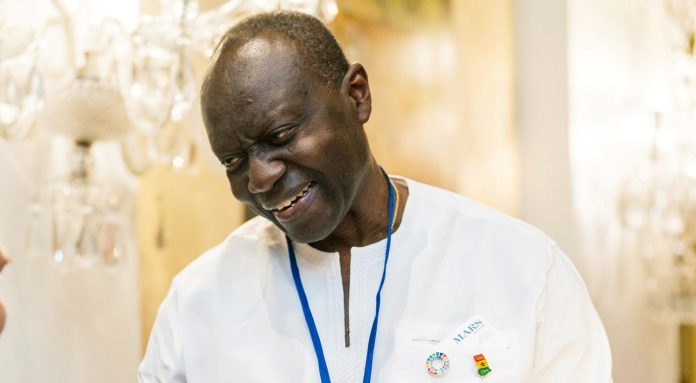Finance Minister, Ken Ofori Atta, has commended Ghanaians for taking part in the controversial Domestic Debt Exchange Programme (DDEP).
The Minister’s comment follows the approval of the $3 billion 36-month Extended Credit Facility (ECF) arrangement for Ghana by the Internation Monetary Fund (IMF)
Mr. Ofori Atta was speaking at a joint press conference yesterday in Washington to provide further details on the $3 billion three-year extended credit facility approved for the West African nation.
“We are indeed grateful to Ghanaians for their participation in the domestic debt exchange programme, which was painful but necessary,” the Minister said.
Finance Minister Ken Ofori-Atta further thanked the IMF for providing the bailout in time
The Executive Board of the International Monetary Fund (IMF) on May 17, 2023, approved about $3 billion 36-month Extended Credit Facility (ECF) arrangement for Ghana. This decision according to the Fund will enable an immediate disbursement equivalent to about $600 million.
The rest is expected to be disbursed in tranches every six months, following programme reviews approved by the IMF Executive Board.
The Fund in a statement said Ghana’s economic programme has three key objectives: restoring macroeconomic stability, ensuring debt sustainability, and laying the foundations for higher and more inclusive growth.
It said the programme will protect the vulnerable as a core objective of IMF programmes. In general, IMF-supported programs seek to boost social spending to improve socioeconomic outcomes and help promote inclusive growth.
To protect the most vulnerable from the immediate impact of the crisis, the IMF said the 2023 budget has doubled the benefits of the existing cash transfer program, the Living Empowerment Against Poverty (LEAP).
In addition, the budgetary allocation of the Ghana School Feeding Program has been increased to compensate for the cost of inflation whilst making sure poor children continue to benefit from free meals at school.
In the health sector, the Fund said financial resources for the National Health Insurance Scheme will be increased and made available on time to ensure the timely reimbursement of medical claims.
Ghana has been facing a severe economic and financial crisis, with a debt burden assessed as unsustainable.
Specifically, a combination of pre-existing vulnerabilities and external shocks such as the COVID-19 pandemic and Russia’s war in Ukraine have resulted in acute financing pressures, a depreciating cedi, declining international reserves, slowing economic activity, and high inflation.



























